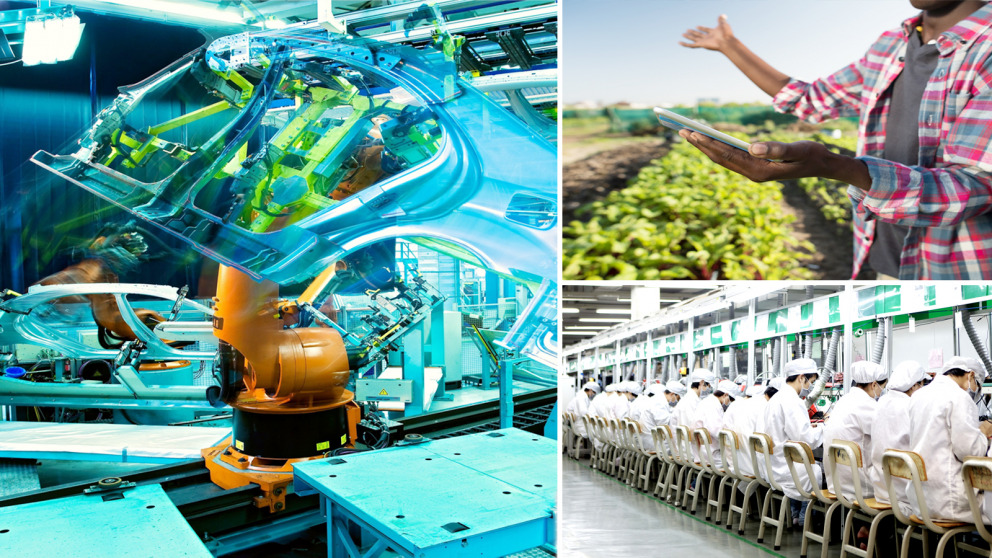Digitalisation and Impacts on Sustainability
Duration

In recent decades, digitalisation has become a driving force in economic development. Yet what remains unclear is whether the growing application of digital technologies, in particular in the industrial sector, will foster or impede the transition towards sustainable development. Can digitalisation contribute to the socio-ecological transformation of business? If so, under what conditions? How do the pathways of a digitalised industry develop internationally and what conclusions can be drawn for a more sustainable development?
Can digitalisation create sustainable economies?
This research project focuses on the interplay of digitalisation, society and environment. For instance, it is unclear whether the potential savings achieved by digitalising industrial production balances out the resources needed to produce the technology in the first place. After all, factories must first be digitally equipped before sensor-based optimisations, and with them reductions in energy consumption, are possible. The research group asks which economic sectors might see leverage effects due to digitalisation and how these effects could be utilised. Here, the group pays special attention to industrial practice and policymaking.
In what ways are digitalisation and sustainable economic development linked in the international context?
Another goal of the project is to gain a better understanding of how digitalisation, economic development and social and environmental factors are linked in low- and middle-income countries. To find this out, the research group is studying a group of selected African, South American and Asian countries. The focus of this study is the extent to which digital technologies in supply chains can lead to a better exchange of information concerning sustainability, as well as how value creation can be made more environmentally friendly. For example, digital interconnectedness creates possibilities for actors to collaborate to make their production processes more environmentally friendly and to implement sustainability standards along the supply chain.
The project "Digitalisation and Impacts on Sustainability" studies the potential that digitalisation holds for sustainability in a global context and explores the conditions under which digitalisation would make it possible to achieve socio-economic benefits and environmental protection at the same time. A specific aim of the research is to incorporate perspectives from industry, policymaking, science and civil society. In addition to academic articles, the group gives briefings to policymakers and business, workshops are held with various actors to develop common solutions, and expertise is shared at specialist events.
Selected Media Contributions
- Podcast: Digitalisierung vs. Nachhaltigkeit - zwei kollidierende Megatrends? (in German)
- Interview: Digitalisation on the African Continent: A Huge Opportunity If We Avoid Past Mistakes.
- Inclusive-Productivity-Blog: Die Digitalisierung der Industrie sozial-ökologisch gestalten (in German)
- Bundeszentrale für politische Bildung. Panelreihe Aktionstage Netzpolitik und Demokratie 2019. Ökologische Nachhaltigkeit digitaler Infrastrukturen (in German)



